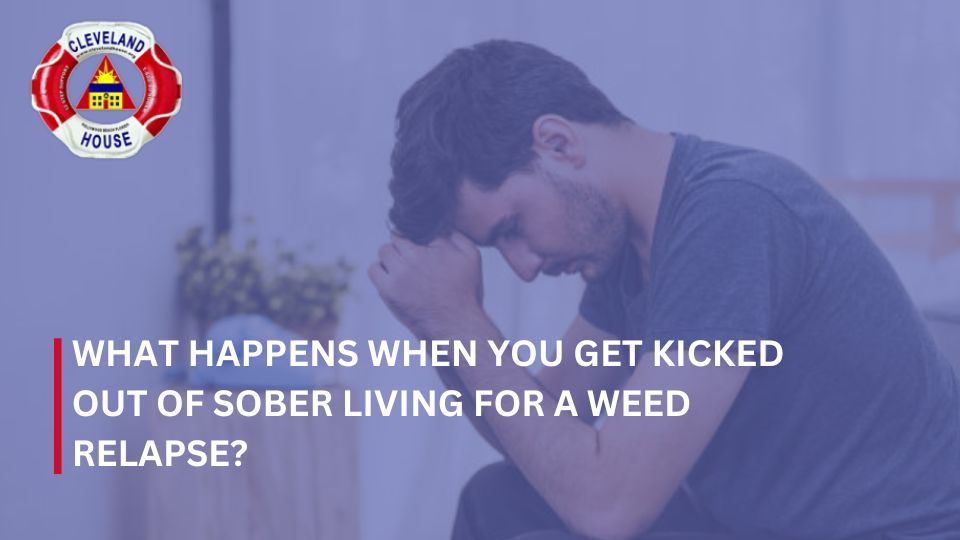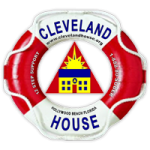
Quick Contact
Do sober living house rules require testing for cannabis or other entheogens? Is cannabis always considered to be an illicit drug?
Have you looked into sober living houses in West Palm Beach Florida? Are you considering any Deerfield Beach halfway houses?
Florida sober living facilities have a wide variety of options available. There are sober homes for men, sober living homes for couples, and there is sober living that allows pets. What about sober homes that make accommodations for people with medical conditions and medication needs?
There are people who have traveled from across the country to attend detox and rehab in Florida. After graduating from rehab, it is time to look for step down sober living to make the transition back to regular, every day life.
A good Florida sober living house will support your recovery, and it will support your efforts in getting a job, or getting an education. Staying sober is critical, and it can be challenging while trying to function in the world outside of rehab.
For people treated medically for addiction with prescription drugs, there can be additional challenges in finding an appropriate sober home or halfway house. Many facilities do not allow clients who are prescribed addiction treatment drugs, such as Suboxone, or medical cannabis.
While they may accept clients who are treated in-clinic for mental health or addiction with a prescription medication such as Sublocade or ketamine infusion, sober home managers typically do not want to worry about medications with abuse potential being in their house. Hence, it is often a challenge to find a sober living arrangement that is compatible with medical cannabis use, or other medication-assisted treatment plans that involve controlled drugs.
What are the sober living home regulations regarding drug use, and drug testing?
When you decide to move into a transitional living facility, such as a twelve-step house, three-quarter way house, or a halfway house, you must be willing to agree to a sober living house contract. In most cases, the sober house rules include routine drug testing.
Starting a sober living house in Florida requires dedication on the part of the house owner and manager. FARR certified residences are sober living homes that have been credentialed by the Florida Association of Recover Residences.
Why would the home manager care about being a FARR sober living residence? Having this certification helps the home to be an active participant in the Florida sober living network, which leads to more referrals from detox and rehab facilities.
In order to get credentialed and stay compliant, house managers are obligated to follow certain sober living community standards. These standards include regular urine drug screens, and in some cases, quantitative drug testing for confirmation.
Florida is one of many states that have legalized medical cannabis, which is an entheogen, or a plant-based psychoactive substance. It is now possible for someone to be in addiction recovery and also use medical cannabis to treat a medical condition. Does this mean that facilities in Florida, such as sober houses in West Palm Beach, Florida, halfway houses in Port St Lucie, Florida, or sober houses in Broward County, have removed marijuana, or THC, from their drug panels?
If you stay in a Florida sober house, you are going to be tested for substance use.
In Narcotics Anonymous, they have a reading in the beginning of every meeting that asks, who is an addict? This is a good question. How do we define an addict who needs help from detox, rehab, PHP, IOP, and sober living?
The word, “addict”, is a lay person’s term, not a medical term. The word is used in NA meetings, AA meetings, and rehabs, but it is far too vague to be a medical diagnosis. In fact, many people find it to be an offensive word that should be avoided.
Substance use disorders are a collection of diagnosis terms that are more appropriate to describe a person’s issue with use of a particular substance. For example, there is opioid use disorder, alcohol use disorder, and cocaine use disorder. While far less common, there is also marijuana use disorder.
While a person who has difficulty controlling use of one substance may also have difficulty with another, this is not always the case. It is possible, for example, that a person may have an opioid use disorder, and still successfully use medical cannabis without misusing it.
The medical addiction treatment community has access to cutting edge, modern therapies, but it is also partially stuck in the past. The Alcoholics Anonymous program, founded in 1935, is heavily entrenched in the world of medical addiction therapy.
Hence, if you stay in a Florida sober house, you may find that the house rules include taking regular drug tests, and abstaining from cannabis, even if it has been prescribed by a doctor. Sober living homes tend to stay close to the ideals of the 12-step philosophy of complete abstinence from all mood and mind-altering substances.
Are there any substance free housing programs that look the other way and do not test for THC?
If you are hoping to go to a sober home, post rehab, and resume your medical marijuana regimen, you may be disappointed to find that nearly all drug tests include a THC panel. It would be almost impossible for a home manager to avoid testing for marijuana.
There has been some public outcry to remove THC panels from drug tests, because it is now a legal and medical substance with little addictive potential. Yet, cannabis is still illegal according to federal law, due to the Controlled Substances Act. It may be many years before we start seeing changes in public health policy and drug tests that are THC-free.
What about a cannabis-friendly sober living home? Of course there is a place for a sober house or halfway house that allows medical cannabis use. While recreational marijuana use is not appropriate in recovery, medical marijuana is a different subject.
Most likely, such a home will not be FARR certified. A marijuana friendly sober residence will serve a very specific niche group that requires sober living services, but cannot tolerate giving up medical cannabis use.
Even in a home that allows THC positive drug tests, residents will still be held to a high standard of sobriety. They will be required to show their medical cannabis card and comply closely with all house rules.
Do recovery meetings accept THC-positive members?
Fortunately, 12-step groups, such as NA and AA, do not perform any drug testing. These peer support fellowships do not provide medical treatment, and they are not accountable to families or authorities to perform drug testing on members.
On the other hand, individual members of these groups may have strong opinions about what it means to be sober and in recovery. Someone who uses medical cannabis should probably not discuss this aspect of their medical care in 12-step meetings.
In fact, as a rule of thumb, you should not discuss medical care with anyone other than your doctors and trusted family members and loved ones who may serve as your healthcare advocates. And, since a sober living home will be testing for THC, it is probably a good idea to let them know if you are prescribed medical cannabis.
In addition to NA and AA, there are other group meetings to attend for peer support. For example, there is SMART Recovery, a science-based program that uses cognitive behavioral therapy to help group members during weekly meetings.
SMART Recovery is a newer, more modern support program for people in recovery. Addiction treatment medications and therapies, including Suboxone, cannabis, or even psychedelic addiction therapy with ketamine IV infusions, are well accepted in SMART Recovery.
Do structured sober living homes test for other entheogenic plant based substances?
We are on the verge of an entheogenic revolution in the world of addiction treatment. In addition to cannabis, there are promising studies happening with ayahuasca, psilocybin, ibogaine, and other similar psychedelic plant products.
Ibogaine treatment, for example, has been shown to erase an addiction from the brain of an individual with a single session. Heroin addicts have walked away from an ibogaine clinic with neither cravings nor withdrawals.
However, ibogaine is a cardiotoxic drug that can cause a patient to have dangerous heart arrhythmias and cardiac arrest. People have died from ibogaine treatment. Additionally, the experience can be highly unpleasant.
Psilocybin is a safer psychedelic substance that comes from fungus. Experts believe that it may be legalized by the federal government and approved by the FDA for medical treatment within the next 5-10 years.
What will happen with drug testing for all of these substances in rehabs and sober living if they become legal? Do they test for LSD, psilocybin, MDMA, DMT, Ayahuasca, or other psychedelics?
While there are lab-based quantitative tests that cover these substances and many more, the typical sober living drug screen does not test for psychedelics. These substances can be misused, but they tend to not be addictive.
Why do sober homes ban drugs that are not addictive?
There are many drugs that are frowned upon in recovery groups that do not have addictive potential. Some do not even get you high.
For example, there are recovery hardliners who would say that you relapsed if you take a Benadryl to help you sleep. Benadryl, or diphenhydramine is not addicting, and the sedation is unpleasant. Addiction experts would likely all agree that calling Benadryl use a relapse is preposterous.
Cannabis is different because it is clearly possible to get intoxicated in a way that many users find pleasant. Marijuana addiction and misuse is not uncommon. Yet, many people with other addictions are able to use medical cannabis without misusing it.
Psychedelics, such as LSD or psilocybin, may be misused, and some people do enjoy the effects of these drugs. However, it is unlikely that they will drive addictive behavior or stimulate cravings for other drugs. These drugs also show potential for being used in healthcare to treat addiction.
MDMA is a psychedelic that is in the amphetamine family. This drug does produce an addictive high, and it can cause cravings for other stimulants, such as cocaine or meth. MDMA use must be avoided, with the exception of use within an MDMA-PTSD study.
Being drug-free allows the sunshine of the spirit to shine through.
In AA and NA meetings, when someone announces that they are clean, but they use cannabis, other members may joke that they are on the “marijuana maintenance program.” Once the word gets out, other members will not take the cannabis user’s clean time seriously.
On one hand, it is unfair that a person in recovery judges another person for doing something different that is working for them. If cannabis keeps a person from going back to heroin, is it really such a bad thing?
Yet, there is something to be said for being completely free of all mind and mood altering chemicals. After a period of time, the mind becomes clear, and the spirit is free to express itself.
Some recovery gurus say that being completely drug free allows the sunshine of the spirit to shine through. When drugs are present, even if those drugs are used to treat addiction, these gurus believe that the human spirit is at least partially blocked by the overcast of chemical influence.
Suboxone and other buprenorphine medications, and also naltrexone, are addiction treatment drugs that work on the opioid receptors. However, people who take these medications properly are not intoxicated, and they often function as well as a person who has never taken any drug.
Alternatively, medical cannabis is intoxicating, and it does have a noticeable effect on cognitive functioning, including reaction speed and memory. While cannabis can provide benefits, such as making drug tapering and drug withdrawal easier, it should not be considered a very long-term solution in addiction treatment for most people.
The path to recovery success is not the same for everyone.
We are all different. There is no one-size-fits-all solution to recovering from substance abuse, a substance use disorder, drug dependency, or an addiction. It is also important to distinguish the difference between physical dependence on a drug and psychological dependence.
For example, there are people who take benzodiazepines for anxiety, such as Xanax, Klonopin, Ativan, or Valium, who have a physical dependence on the drug, but not an addiction. They are not engaging in drug abuse, so they require a different kind of treatment program.
If a benzo-dependent person wants to achieve a benzo-free state, they should work with a doctor on a long-term, gradual taper plan, as described in the Ashton Manual, in order to minimize withdrawal symptoms and avoid protracted withdrawal. Detox and rehab are usually not the right place for treating benzodiazepine dependence.
Similarly, addictions vary from one person to another, and they differ based on the substances involved. Prayer and the 12-steps can help, but addiction is a medical condition that requires medical attention as well.
Instead of confronting a person who follows a different path, because we think they are doing it the wrong way, we should consider listening to what they have to say. While they may need our help and guidance, it is possible that they are doing something that is right for them, and we could possibly learn by hearing them out and listening to their story.
Recent Posts
About
The Cleveland House is a Men’s Sober Living Residence that has set the standard in addiction recovery housing in South Florida since 2003. We invite you to join us on your journey through sobriety…call 7 days a week at: (888) 80-SOBER or (954) 931-2500.


